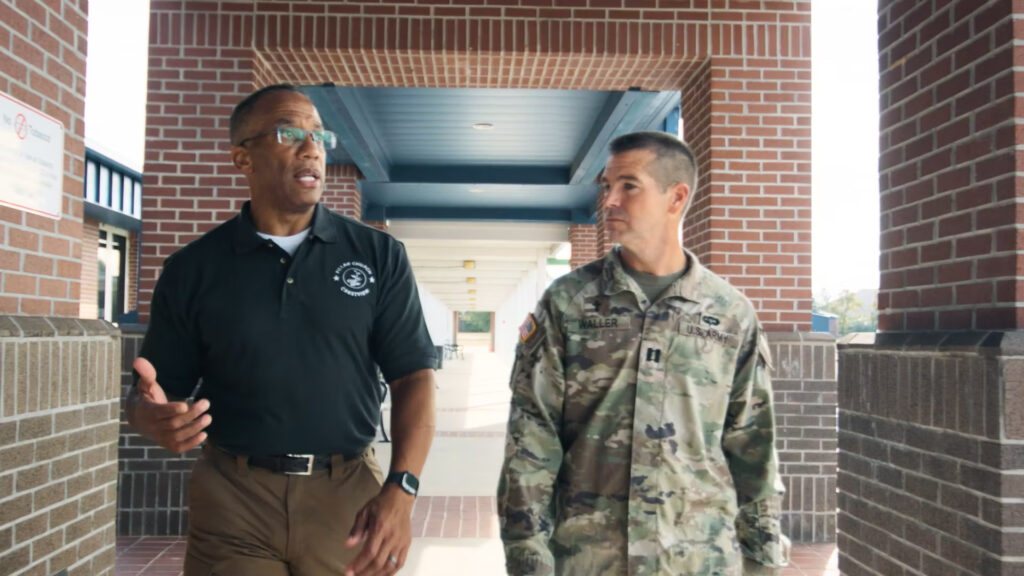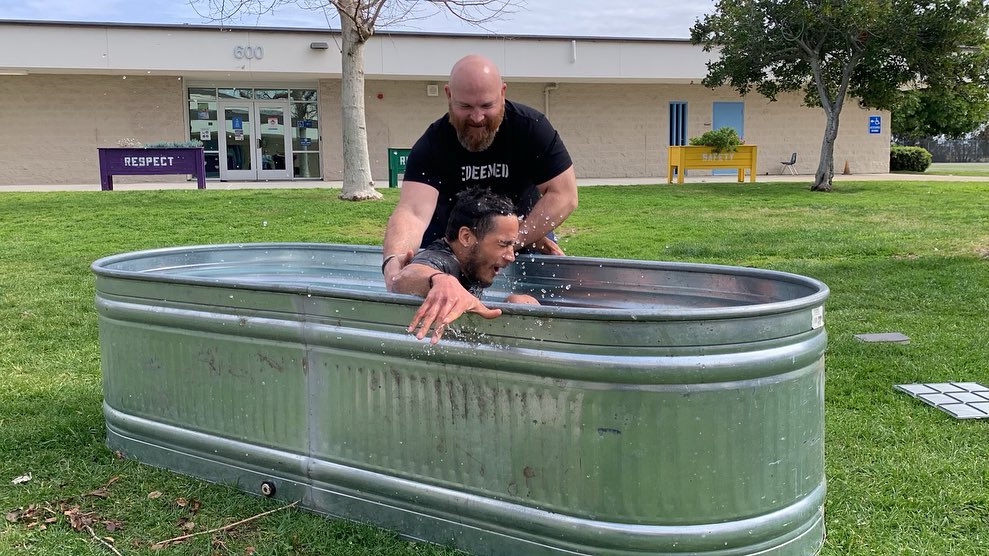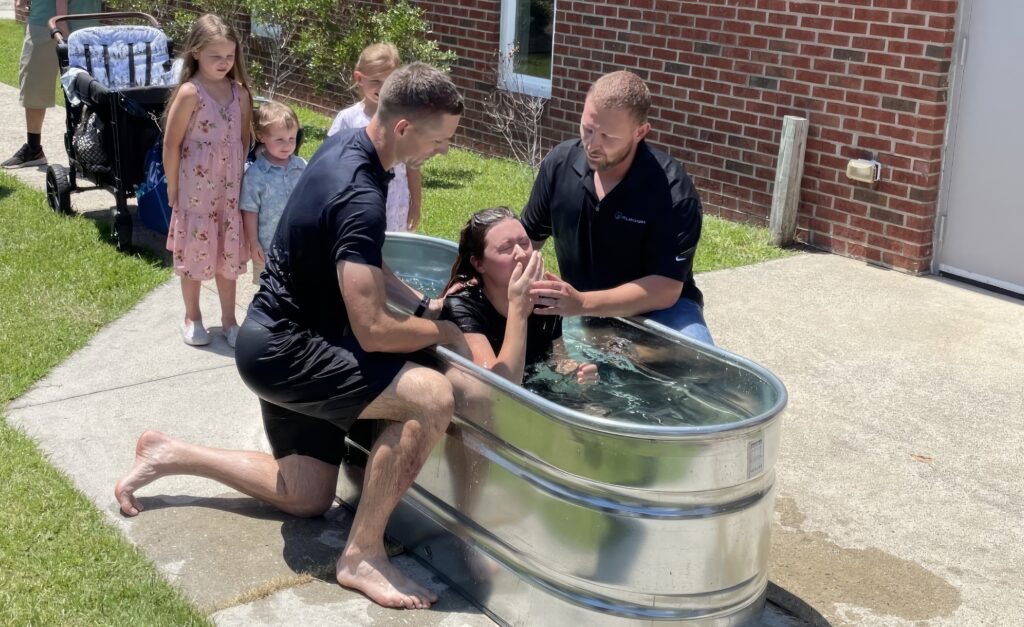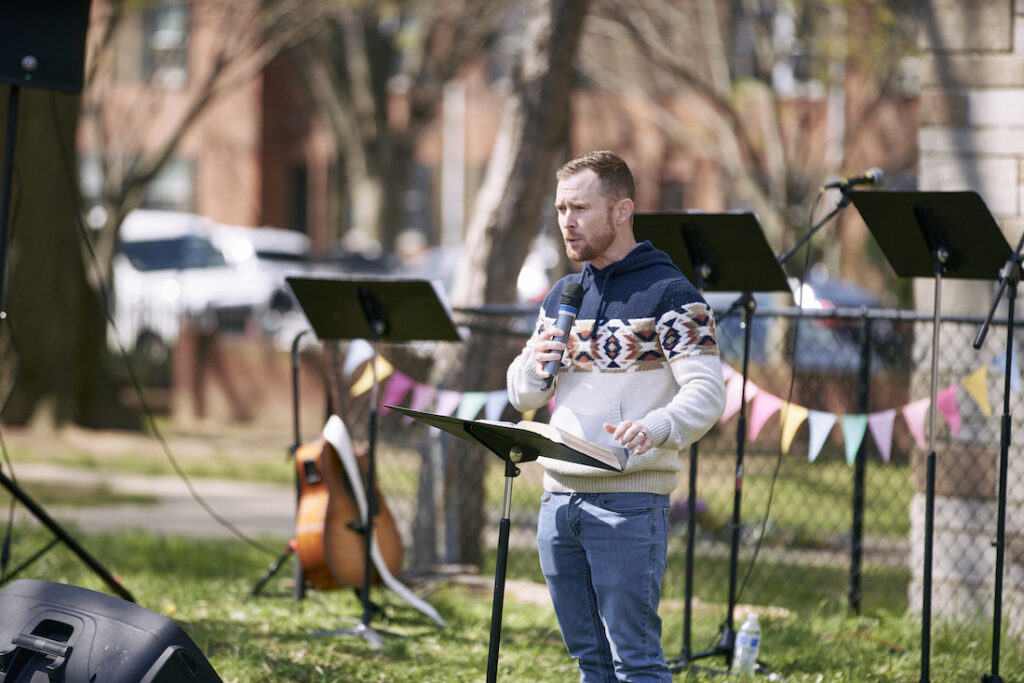When I was growing up, I loved watching “Mr. Rogers Neighborhood.” I loved the trolley that took me to the Land of Make-believe, I loved Mr. McFeely and Speedy Delivery, and I especially loved hearing Mr Rogers say, “Hello, neighbor!” During the opening credits, Mr. Rogers would sing away any problems I had from the day and encourage me by singing, “I’ve always wanted to have a neighbor just like you.” He was always happy, encouraging and friendly.
Now that I’m an adult and live in my own community, I wonder if my neighbors say, “I’ve always wanted to have a neighbor just like you.” I wonder if they see me and my family as the folks in the community who would be missed if we moved. I wonder if they see me and my family as the indispensable Jesus-followers in the community or if we’re just another family in another house with another yard on another street.
Impacting our communities
As followers of Jesus, do we impact our neighborhoods and communities? Do our neighbors know us as the Christians around them, or do our neighbors know us as the nice family on the street? For that matter, do our neighbors even know us?
More than 2 billion people around the world self-identify as Christian, and just over 7 billion people live on the planet as a whole, so those who claim to follow Jesus make up over 25 percent of the world’s population. That means your chances are decent for having a Christian neighbor. In some parts of the world, you may even live in a predominately Christian town or city. However, the flip side is also true. Since nearly 75 percent of the world does not identify as Christian, your chances of not having Christian neighbors are much greater.
What’s the Christian to do with neighbors who don’t follow Jesus? Are they the enemy, are they just the folks who live beside us, or are they God’s providential way of placing unbelievers in our paths? The overwhelming majority of my neighbors are not followers of Jesus. Maybe some of your neighbors don’t follow Jesus either. Now what? As Christians, how do we exhibit love toward our neighbors who are Muslims, Mormons, Buddhists, atheists, Jehovah’s Witnesses or Hindus?
They’re not the enemy
We must understand one thing; the unbelievers around us surely are not the enemy. In Matthew 22, Jesus was asked about the greatest commandment. He answered with two sides of the same coin: love God, and love others. Specifically, He said we, His followers, should love God with everything and we should love our neighbors as we love ourselves. When Jesus taught us to love our neighbors, what did He mean? If your neighbor is a believer, sometimes it’s not easy, but it should be second nature for us to love other believers. It is often much harder to love someone who does not follow Jesus, but that doesn’t make them the enemy.
In John 10, Jesus said the enemy comes to steal, kill, and destroy. I don’t know about you, but most of my neighbors aren’t out stealing, killing, and destroying, at least not in a physical way. The enemy is Satan. About that, there is no question. He is the one who is out to seduce humans into following their own drives, desires, and passions. He wants nothing more than to stop humanity from seeking after God. We simply can’t confuse the two. Though we should not endorse or condone the sinful behavior of unbelievers around us, we should always look for ways to talk to them, encourage them to seek after the Lord and share the gospel with them. We should be the embodiment of 2 Peter 3:15.
Published September 5, 2016




